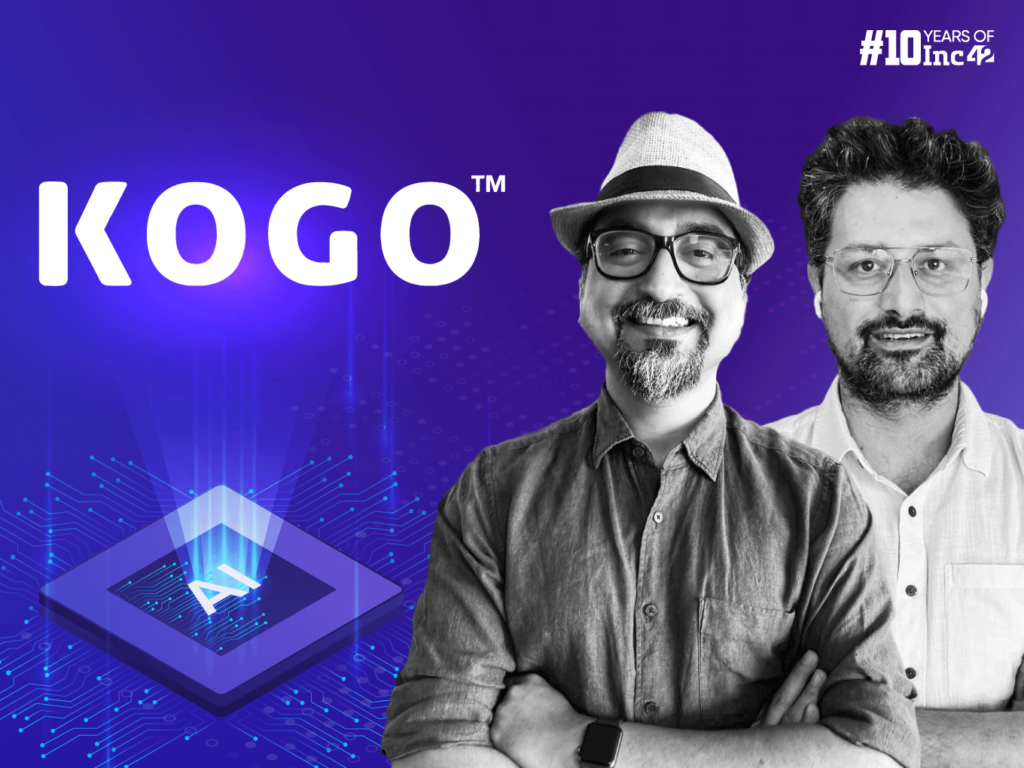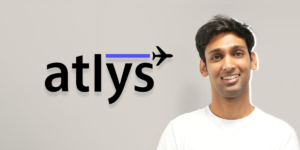How MapmyIndia Backed KOGO AI is Helping Enterprises Build Custom AI Agents

Introduction:
With the advent of GenAI, the world’s technological landscape is changing at an unimaginable pace, and India is no exception. Notably, there is a renewed investor interest in the world’s third-largest startup ecosystem on the back of the rising influx of AI-based products. The mania to jump on the GenAI bandwagon is such that even Indian tech behemoths like TCS and Wipro are seen deploying GenAI-based agents to improve employee experiences, CRMs, and ERPs, while industries such as insurance and healthcare are using the technology for better user, customer, and patient management. Working in the backdrop to cater to the country’s GenAI aspirations is Bengaluru-based KOGO AI. Eyeing a juicy chunk of the Indian GenAI opportunity expected to surpass $17 Bn by 2030, the startup is building a customizable AI operating system, KOGO OS, which can build, manage, and deploy various AI agents across industries.
The Genesis of KOGO AI
Founded in 2018 by Raj K Gopalakrishnan and Praveer Kochhar, KOGO AI started as an AI-based travel expert platform. KOGO OS is an extension of the startup’s AI offering. Built on a Large Action Model-based (LAM) framework—a concept first introduced by Rabbit AI—KOGO OS is a low-code platform that allows companies in varied industries, including travel, mobility, retail, and manufacturing, to build their own AI agents.
Early Challenges and Pivot
The KOGO AI story began over five years ago when the cofounders started leveraging narrative intelligence, a precursor to GenAI, to build their first product for the travel industry, which was launched in February 2020. However, the pandemic struck, and the entire travel industry was left in shambles. Unshaken by the worldwide meltdown, the cofounders stayed committed to their quest, which led to the development of an AI mobility stack.
Collaborations with Major Auto Manufacturers
To deploy its AI mobility tech stack, the cofounders reached out to some of the leading automobile manufacturers in the country like Hero MotoCorp, TVS, Bajaj, KTM, and Jawa. These companies used KOGO’s AI stack for loyalty and engagement of their riders’ communities on their respective apps. Using narrative intelligence, KOGO’s AI stack created a huge pool of travel stories for rider communities, all while enabling travel discovery and enhanced experiences for them.
The Evolution of KOGO OS
In 2022, the startup got an INR 10 Cr fund infusion from MapmyIndia for a 26.37% stake. This helped KOGO get access to MapmyIndia’s mapping technology Mappls, infusing confidence in KOGO AI to build further. By this time, the cofounders desired to build an AI travel expert, which by conversing with customers could plan detailed travel itineraries and book hotels and flights, leading to the genesis of KOGO OS.
Building the Ultimate AI Travel Expert
“While we were developing the AI stack, we were also building, what we called, the ultimate AI travel expert. But in order to build the expert, which could complete a combination of tasks that traditionally generative AI could not do, we had to create a large action model (LAM) based framework on top of large language models (LLMs) to be able to complete tasks. So, we created an operating system, KOGO OS,” Gopalakrishnan said.
What Does KOGO OS Solve?
According to Gopalakrishnan, 70-90% of chatbot queries, whether on conversational or non-conversational bots, are ultimately forwarded to a live agent because most chatbots are not trained enough to resolve them. The cofounder claims to solve this problem with KOGO OS, particularly for tasks such as customer care service on shopping apps and research.
AgentGraph: The Core Technology
Publicly unveiled in May this year, KOGO OS is built with the company’s proprietary technology called AgentGraph. This technology is designed to solve problems faster and more efficiently without requiring human intervention. For instance, the founder explained that AgentGraph can comprehend any kind of data, including vector databases, structured and unstructured data, live APIs, and even retrieval-augmented generation (RAG) pipelines that provide real-time information from the internet. Additionally, AgentGraph can analyze this data.
Advanced Capabilities
The technology also has vision capabilities, allowing it to interpret images. Furthermore, it can interact with users across different mediums and perform tasks autonomously. “KOGO OS enables anyone to create agents, with the AgentGraph being the core technology inside the OS,” said Gopalakrishnan. The founder added that KOGO OS can troubleshoot and resolve any software-related issue on its own without the need for a human technician. It can also keep track of parts that need to be replaced, make appointments with technicians for repairs, and carry out payments by itself. Unlike generative AI agents that require employees to type in natural language queries, KOGO OS can interact with humans through texts, phone calls, and across devices and wearables.
KOGO AI’s Market Strategy
KOGO AI’s OS caters to both enterprises and SMEs. Given the complex workflows in enterprises, companies can log in to KOGO’s platform to custom-build agents. While building AI agents from scratch usually takes months, KOGO claims that companies can build custom agents on KOGO OS within days.
No-Code Platform and Pre-Built Agents
Besides, KOGO also has a no-code platform where it has built 26 agents so far to solve small tasks such as appointments, document management, and others. SMEs can pick and choose their requirements from KOGO’s agent store and deploy these AI agents in minutes. To strengthen its agent capabilities, KOGO AI is also training and building its own small language models (SLMs) that are domain-specific.
Funding and Expansion Plans
In September last year, KOGO AI raised an additional INR 9 Cr from MapmyIndia, increasing MapmyIndia’s stake in the company to 40%. To date, KOGO AI has raised approximately INR 25 Cr in total funding from SenseAI Ventures’ General Partner Raja Gopalakrishnan, Umang Vohra, MD and global CEO of Cipla Pharmaceuticals, Rampraveen Swaminathan, MD and CEO of Mahindra Logistics, and other angel investors.
Future Prospects for KOGO AI
Currently, KOGO AI has undertaken 14 proof of concepts (POCs) for AI agents across various industries, including customer service, research and analysis, accounting, and business intelligence. Of these, six deployments are scheduled to go live by July 15. To address language diversity in India, KOGO AI has also signed an MOU with the Indian government’s Bhashini initiative. Currently, the POCs of KOGO OS support Hindi, Urdu, and English, and the startup plans to support 76 languages soon.
Revenue and Market Reach
KOGO AI currently serves the travel and mobility, BFSI, ecommerce and retail, business, and manufacturing sectors in B2B and B2B2C models. In the last two fiscal years (FY23 and FY24), KOGO AI has generated revenues to the tune of INR 2.5 Cr. With the 14 POCs for KOGO OS ongoing and a few of them set to go live soon, the startup expects to start generating revenue from this business in June itself. It projects to hit an ARR of $2.5 Mn by March 2025. In the short term, KOGO AI plans to expand its footprint to the Middle East, Latin America, and ASEAN markets.
Leading in the Emerging LAM Space
It is to be noted that the startup is working with LAMs, which is increasingly catching more eyeballs and receiving hype given their capability to execute complex tasks by translating human intentions into actions. While KOGO AI claims to deliver cutting-edge technology with accuracy, security, and empathy, it will be interesting to witness how the startup plans to lead in the emerging LAM space, all while managing the growing concerns around the ethical use of GenAI models.
Conclusion
KOGO AI is carving a niche for itself in the Indian AI landscape with its innovative solutions and robust technology stack. The startup’s journey from an AI-based travel expert platform to a comprehensive AI operating system showcases its adaptability and forward-thinking approach. With strong backing from MapmyIndia and a growing list of collaborations, KOGO AI is poised to make significant strides in the GenAI space. As it continues to develop and deploy custom AI agents across various industries, KOGO AI stands out as a promising player in the ever-evolving world of artificial intelligence.
FAQs
1. What is KOGO AI?
KOGO AI is a Bengaluru-based startup that develops customizable AI operating systems for building, managing, and deploying AI agents across various industries.
2. What is KOGO OS?
KOGO OS is an AI operating system developed by KOGO AI, built on a Large Action Model-based (LAM) framework. It allows companies to create custom AI agents for different applications.
3. How does AgentGraph work?
AgentGraph is KOGO OS’s core technology, designed to comprehend and analyze various types of data, including structured and unstructured data, live APIs, and more, enabling autonomous task performance.
And also read our latest blog: DeFi Startup Qiro Finance Bags Funding From Alliance and Other Investors




